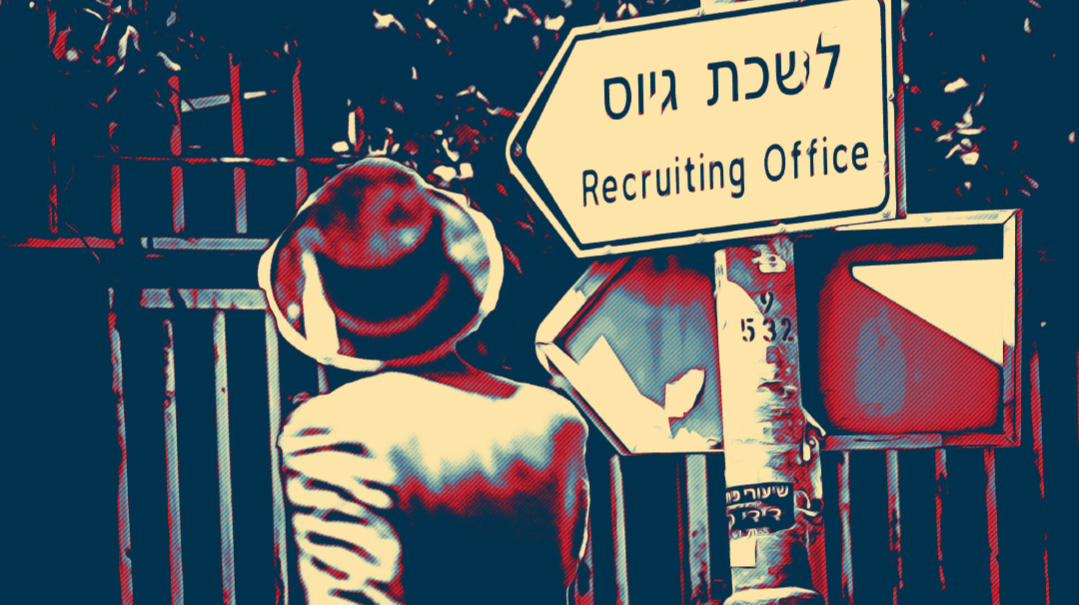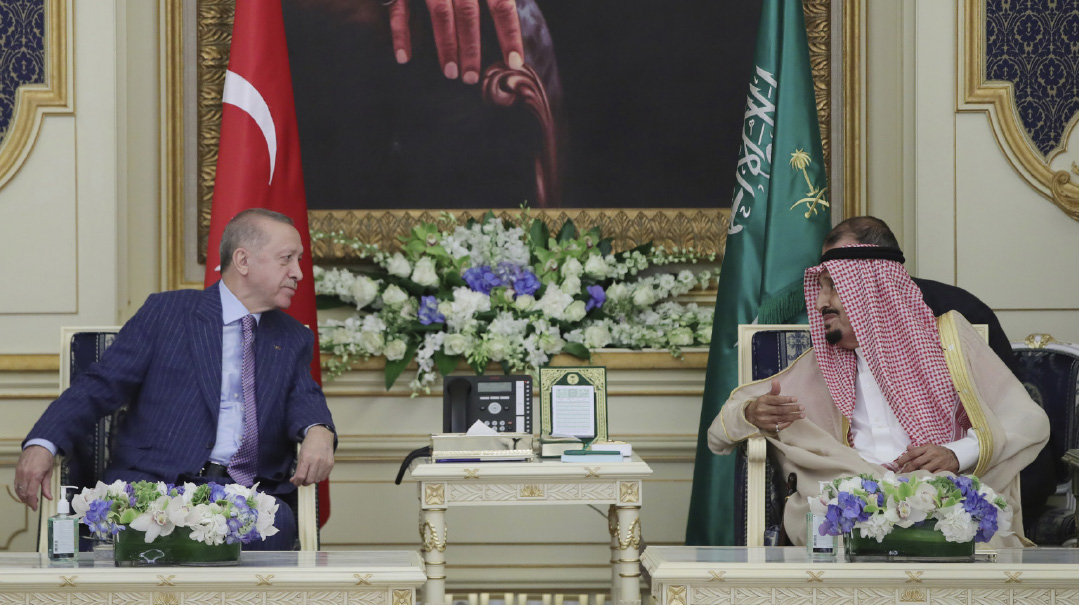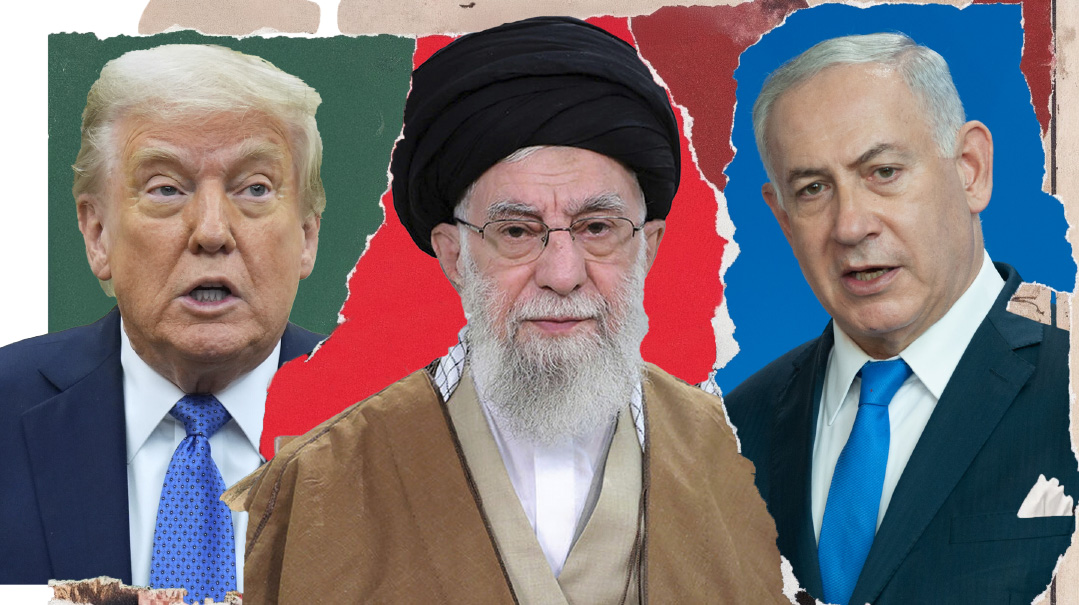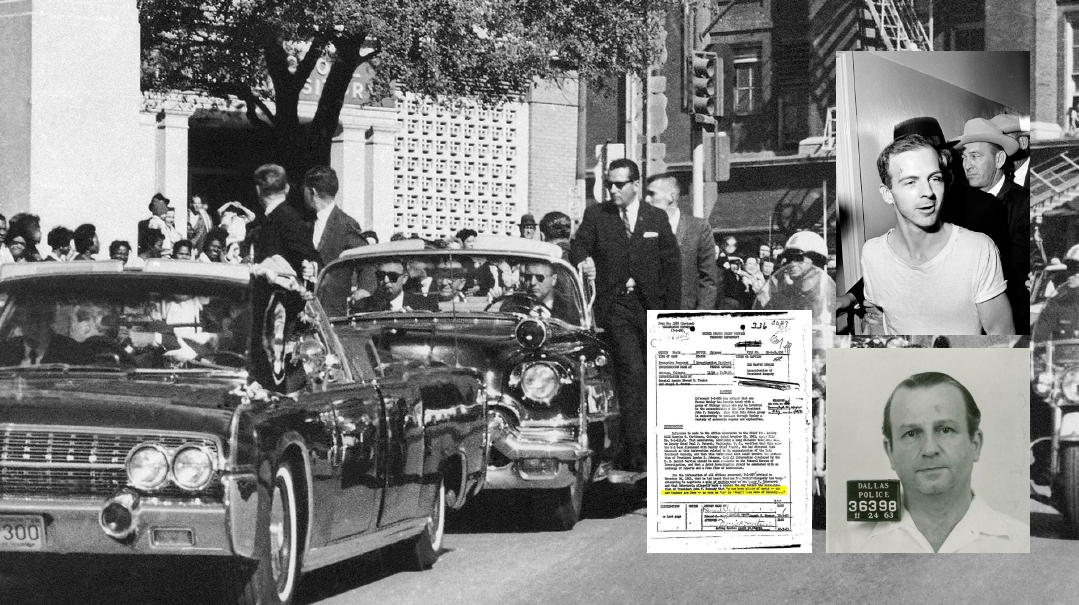Timeline of a Crisis
| March 12, 2024Israel's draft law battle is as old as the State

Photo: AP Images, Flash90
A
mid an existential war, growing international isolation and the return of left-right divisions, Israel’s oldest debate – about the chareidi exemption from IDF service – is back in the headlines. By High Court fiat, the countdown to agree on a new draft law is on, and the divisive issue is causing havoc in Netanyahu’s already-rickety coalition.
No one saw it coming — at least not from that direction. At a Wednesday night press conference two weeks ago, Defense Minister Yoav Gallant tossed a political hot potato right into Binyamin Netanyahu’s hands.
“Any draft law agreed upon by all the parties in the emergency government will be acceptable to me,” Gallant said, “but without the agreement of all members of the coalition, the defense establishment headed by me will not submit the law.”
“All members of the coalition,” obviously, was a reference to National Unity’s Benny Gantz and Gadi Eisenkot.
“In recent weeks, I have met with the prime minister, the chairman of National Unity, and with key elements in the coalition and the heads of the chareidi parties,” Gallant said. “What I said to them, I will tell you tonight: It is possible and necessary to reach broad agreement on a proposal for drafting a growing share of the chareidi public, which is already contributing to the national effort. I call on the prime minister to lead a process with all the factions in the coalition and reach the necessary agreements on the draft law. I hope that even elements of the opposition will join the proposal we come up with.”
The timing is no coincidence, but this time there’s a sense that this is the last chance to enact a law that will benefit the chareidi public — if such a thing is possible at all, given that it couldn’t be done in all the decades since the state was established.
The draft law was the most explosive issue in the early history of the State of Israel, sparking protest from both right and left. However, while yeshivah students were entitled to exemptions, under varying conditions, from the very founding of the state, the first law regulating the matter wasn’t enacted until the 2000s. Until then, the whole arrangement was based on a temporary measure that somehow had withstood the test of the High Court, twice.
Ironically, it was only after the arrangement was enshrined in legislation that the High Court of Justice began intervening, time and time again — first in 1998, and then in 15 further rulings, the last and most dramatic of which came just two weeks ago.
What follows is a timeline tracing the meandering course of this issue from when it first arose, at the birth of the state.
November 1947
Kol korei
The War of Independence breaks out, and Agudas Yisrael in Jerusalem issues a “kol korei” for general mobilization to the religious battalions. Many of Jerusalem’s sons fall in battle.
October 1948
400 exemptions
Prime Minister David Ben-Gurion ratifies the agreement, and the Provisional State Council passes Agudas Yisrael’s request to exempt 400 active yeshivah students from service.
March 10, 1948
“Approved lists”
After striking a deal with the Vaad Hayeshivos, Haganah Chief of Staff Yisrael Galili instructs IDF brigades not to recruit students from an “approved list” of yeshivos.
September 8, 1949
Security Service Law
Ben-Gurion enshrines the draft exemptions for yeshivah students in section 12 of the Defense Service Law.
October 20, 1952
Parable of the full wagon
Ben-Gurion visits the home of the Chazon Ish to discuss the draft question. At the meeting, the Chazon Ish cites the famous parable of the full wagon and the empty wagon. The meeting doesn’t lead to concrete government decisions, but is considered one of the cornerstones of the later legislation regulating exemptions. Ben-Gurion approves exemptions for 400 young men, but only 256 take advantage of it.
1954
Recruitment after four years
Defense Minister Pinchas Lavon directs that chareidim be drafted after four years in yeshivah. When the roshei yeshivah of the Vaad Hayeshivos protest, Prime Minister Sharett cancels Lavon’s directive.
1958
Torato umanuto
Defense Ministry director-general Shimon Peres renegotiates the arrangement, which becomes known as “Torato umanuto [his Torah is his occupation].” Per the new arrangement, anyone who studies in a yeshivah is entitled to a full exemption; anyone who chooses to leave yeshivah before the age of 25 is to be drafted into the regular military service; anyone who leaves between the ages of 25 and 29 is to drafted for three months of service and added to the reserves pool; and a student who leaves yeshivah after the age of 29 is to be added to the reserves pool.
March 1968
The change of 1968
As part of the fallout of the Six Day War, the IDF chief of staff asks the defense minister to limit the extent of the exemptions. As a result, the number of annual exemptions is capped at 800, and it is decided that no additional yeshivos will be added to the list of institutions recognized for exemption purposes.
1970
First petition
The first petition against the exemption arrangement is filed with the High Court. The petition is filed by a reserve officer who claims that he will have to serve longer to make up for those who don’t serve. The High Court rejects the petition, citing “lack of justiciability.”
1975
Adding more yeshivos
Defense Minister Shimon Peres lifts the restrictions on the number of institutions recognized for exemption purposes, but the official overall limit remains steady at 800. In practice, though, the number of annual exemptions runs into the thousands.
1977
Begin government
The yeshivah world has grown significantly since the initial arrangement, and as part of the first right-wing government’s coalition agreement, the limit on the number of annual exemptions is lifted, building on the previous government’s 1975 decision to end the restriction on recognizing new yeshivos for exemption purposes.
Exemptions are expanded even further after 1981, when the conditions for eligibility are made more flexible. As a result of these measures, the number of yeshivah students eligible for exemption from military service increases sharply, reaching almost 10,000.
1986
Ressler v. Minister of Defense
Another petition is filed with the High Court of Justice against exemptions for yeshivah students, a case known as Ressler v. Minister of Defense. The High Court agrees that the petitioner has legal standing and that the matter is justiciable, but accepts the defense minister’s arguments in favor of the existing arrangement and leaves the situation as is.
1998
The Hacohen Committee
A subcommittee of the Knesset Foreign Affairs and Defense Committee is appointed to examine the issue. The committee, headed by Labor MK Menachem Hacohen, becomes known as the Hacohen Committee. The committee’s recommendations, which it submits two years later, include establishing an academic reserve for yeshivah students. This matter is never fleshed out, as the Hacohen Committee recommendations aren’t implemented.
Meanwhile, the number of exemptions granted in 1998 grows to 30,000.
1999
The turning point
The chareidi Nahal Brigade is established, and a petition is filed with the High Court of Justice to cancel the exemptions arrangement. The High Court determines that the defense minister lacks the power to grant sweeping exemptions, and the arrangement has to be regulated legislatively. As a result, the Tal Committee is appointed to draft legislation on the matter.
2000
Tal Committee
It takes almost a year for the Tal Committee to formulate its recommendations. In 2000, the committee’s chairman, Justice Zvi Tal, finally releases its conclusions: Put simply, the status quo should continue. That is, yeshivah students should continue to receive exemptions from conscription, but from now on it should be regulated legislatively rather than administered through Defense Ministry decisions.
2002
First legislation
The Knesset passes the amended draft law, which stipulates that all Torato umanuto yeshivah students receive deferrals until the age of 22, at which point they can decide whether to continue studying or go out to work. Those who choose to work will be able to choose between shortened military service, including reserve duty, and a year of national service.
The law is enacted with a sunset provision of five years, until 2007. But by July 2005, it becomes clear that the plan has failed — from the state’s perspective — because the recruitment goals aren’t being met.
2007
Further extension
The High Court of Justice examines the Tal Law and determines that it has failed, but extends it for another five years — despite the Olmert government’s relative hostility toward chareidim, and the Second Lebanon War.
February 2014
A million men
Netanyahu approves the Shaked Committee’s recommendations.
As a result, hundreds of thousands of chareidi Jews hold a huge demonstration against the draft law in Jerusalem, known as the “Million-Man Protest.”
2012
Plesner Committee
Another five years passes, and in 2012, following another petition, the Supreme Court strikes down the Tal Law as discriminatory. The Plesner Committee is established the same year. Just before the committee submits its conclusions, Netanyahu disbands it to avoid the political fallout from its findings.
March 12, 2014
Passing the law
The law passes the Knesset plenum in its second and third readings.
2013
Perry Commission
Following the establishment of the Netanyahu-Bennett-Lapid government, which leaves the chareidim in opposition, the Perry Commission recommends a plan that would exempt only 1,800 “matmidim” from conscription each year, alongside economic sanctions on yeshivos that fail to meet conscription targets and criminal sanctions on yeshivah students who don’t enlist — a first.
The recommendations are accepted by the committee. The law passes first reading, with the chareidi parties voting against, and is sent to the so-called Shaked Committee, headed by then-MK Ayelet Shaked, to be prepared for the second and third readings.
November 2015
Back to the good old days
After the chareidim return to the coalition, relegating Lapid to the opposition, the Knesset passes a number of amendments to the law passed a year and a half earlier, extending the adjustment period and postponing the sanctions until 2023, when the defense minister will decide whether they are necessary or not. This is accepted by the chareidi parties.
September 2017
First disqualification
By a majority of eight to one, the High Court accepts a petition from Yesh Atid and the Movement for Quality Government to strike down the draft law, citing “inequality of burden.” The Knesset is given one year to enact a new law.
February 2018
Lieberman effect
Defense Minister Avigdor Lieberman establishes a committee composed of representatives of the IDF and the Defense Ministry to draft a proposal that can withstand the test of the High Court.
July 2018
Recommendations
In June 2018, the committee publishes its recommendations, which includes recruitment quotas enshrined in law, economic sanctions, and progressively increasing recruitment quotas such that within a decade, a majority of draft-age chareidi men would be drafted.
First extension
The bill passes its first reading, with the chareidim voting against and Yesh Atid voting in favor from the opposition. In the interim, the High Court of Justice extends the validity of the 2014 law until January 15, 2019. It is the first of many extensions.
After Yesh Atid withdraws its support for the bill, a snap election is called, and the High Court of Justice postpones the 2014 law’s expiry yet again, to July 28, 2019. After the April 2019 election, the chareidi parties and Lieberman are unable to come to agreement on wording, and the 21st Knesset is dissolved a month after it convenes, sparking the 2019-2021 political crisis.
2023
A promise
Before forming the current government, Netanyahu pledges to enact the draft law proposed by the chareidim alongside the state budget. What do the chareidim propose? Above all, they seek a clear statement that anyone who wants to learn will be allowed to do so.
The bill obviously isn’t passed alongside the budget, but something else happens in the meantime. The 2014 law, passed as a temporary law, expires for good in June 2023, leaving yeshivah students subject de jure to the draft. As a short-term solution, the government passes a resolution not to draft yeshivah students for another nine months, until April 2024.
February 2024
High Court ruling
The High Court issues a conditional order requiring the government to explain why its resolution not to enforce the law in the interim should be extended, given that new legislation isn’t in sight. Another conditional order issued at the same time requires the state to explain why it continues to fund yeshivah students and yeshivah students who are still of draft age — despite the expiration of the law regulating exemptions.
(Originally featured in Mishpacha, Issue 1003)
Oops! We could not locate your form.







